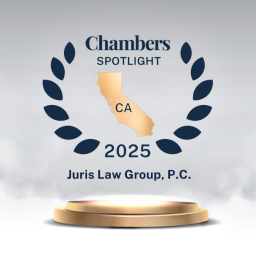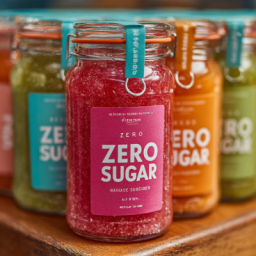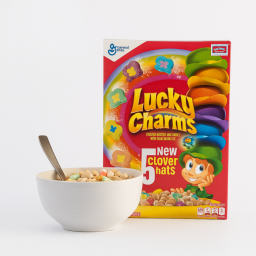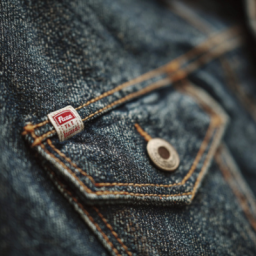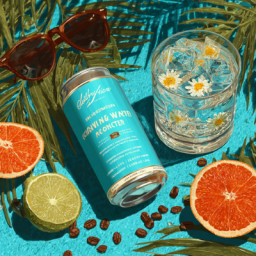
The following is a summary of relevant, notable Class Action Lawsuits that were filed during August 2025. Below is a summary of the plaintiff’s allegations. To request a copy of a particular complaint or for queries or further discussion, you’re welcome to reach out via email at [email protected].
What Is a Class Action?
A class action is a lawsuit filed on behalf of a group of people (a “class”) who have suffered similar harm from the same defendant. Instead of many individuals filing separate cases, one or more plaintiffs act as class representatives. This allows courts to address widespread harm more efficiently and ensures consistent results. In consumer protection cases—like the food and beverage filings we’ve reviewed—class actions often target misleading labels, false advertising, or deceptive marketing practices.
1. Fletcher v. The Coca-Cola Co.
Plaintiff: Roxanne Fletcher, on behalf of herself and similarly situated consumers Defendant: The Coca-Cola Company
Product in Focus: Minute Maid Watermelon Fruit Drink
Summary:
Plaintiff alleges that The Coca-Cola Company falsely and misleadingly markets its Minute Maid Watermelon Fruit Drink as having “No Preservatives Added” when, in fact, the ingredient list includes citric acid—a synthetic substance that can function as a preservative. The complaint outlines that modern citric acid is produced through an industrial process involving Aspergillus niger (black mold), genetically modified feedstocks, and chemical treatments. According to Plaintiff, this misbranding deceives health-conscious consumers seeking preservative-free beverages, allowing Coca-Cola to sell the product at a premium price.
Prayer for Relief:
Plaintiff seeks an order declaring the case a proper class action, certifying Plaintiff as the class representative, and appointing counsel for the class. Plaintiff requests actual damages, excluding statutory penalties, full value damages, and punitive damages, as well as any other relief the Court deems just and proper.
2.Georgopoulos v. Langers Juice Company, Inc.
Plaintiff: Anastassia Georgopoulos
Defendant: Langers Juice Company, Inc.
Product Focus: Langers Concord Grape 100% Juice
Summary:
Plaintiff brings this putative class action alleging that Langers Juice Company falsely markets its Concord Grape 100% Juice as being made entirely from grape juice and fruit-derived ingredients. According to the complaint, the product is misrepresented because, despite the “100% Juice” claim, it contains synthetic, non-natural additives—specifically ascorbic acid (a human-made preservative) and citric acid (a human-made additive). Plaintiff asserts that the labeling fails to disclose these additives and does not include the required “with added ___” statement mandated by federal regulations. These alleged omissions, Plaintiff claims, render the product misbranded under the Federal Food, Drug, and Cosmetic Act and violate California’s Sherman Law and various state consumer protection statutes.
Prayer for Relief:
Plaintiff seeks an order certifying the class, declaring Defendant’s conduct unlawful, awarding compensatory, statutory, and punitive damages, prejudgment interest, restitution, injunctive relief, and attorneys’ fees and costs.
3. Brian Keegan v. Malek Bhairil & Nature’s RX, LLC
Plaintiff: Brian Keegan
Defendant: Malek Bhairil and Nature’s RX, LLC
Product Focus: DragonX Silver (“DragonX”)
Summary:
Plaintiff alleges that Defendants falsely marketed DragonX Silver as an “all natural” product made solely from herbal ingredients, botanicals, and minerals, when in fact it was covertly adulterated with the prescription drugs Sildenafil (the active ingredient in Viagra) and Tadalafil (the active ingredient in Cialis). The complaint asserts that Defendants deliberately concealed the presence of these pharmaceuticals—only available by prescription under the supervision of a physician—and falsely represented DragonX as a wholly natural, safe product effective for erectile dysfunction. According to the suit, laboratory testing conducted in July 2025 confirmed the undisclosed presence of both drugs, which poses significant health risks to consumers, especially those with medical conditions that contraindicate PDE5 inhibitors. Plaintiff claims violations of the New Jersey Consumer Fraud Act, fraud, misrepresentation, breach of warranty, and related causes of action, seeking to represent all purchasers of DragonX during the six years preceding the lawsuit.
Prayer for Relief:
Plaintiff, individually and on behalf of the class, seeks judgment against Defendants for all damages permitted by law, including punitive damages, pre- and post-judgment interest, costs, attorneys’ fees, and other further relief as deemed just and proper by the Court, including injunctive relief to halt the sale and marketing of the adulterated product.
4. Lopez v. Goya Foods Inc.
Plaintiff: Richard Lopez
Defendant: Goya Foods Inc.
Product Focus: Goya Sofrito Tomato Cooking Base – “Green Peppers, Onions, Cilantro and Garlic in Olive Oil”
Summary:
Plaintiff Richard Lopez alleges that Goya Foods misbranded its Sofrito Tomato Cooking Base to mislead consumers who value olive oil. The product’s front label emphasizes “in Olive Oil,” suggesting that olive oil is a significant ingredient. However, the ingredient list shows “soybean oil” in fourth position, while “olive oil” is listed eleventh—less than “onion powder.” Plaintiff contends this violates New York Agriculture and Markets Law because the name should include “artificial” or “artificially flavored” if olive oil is not a predominant ingredient. As a result of these representations and omissions, the product is sold at a premium price of approximately $2.69, allegedly higher than it would be if marketed truthfully. The complaint claims that consumers paid more due to misleading labeling, a value that can be quantified using conjoint analysis and similar methodologies.
Prayer for Relief:
Plaintiff seeks a jury trial and requests that the court: (1) declare this a proper class action, certifying Plaintiff as the representative and counsel as class counsel; and (2) award actual damages, but not penalties, statutory minimum damages, full value damages, or punitive damages.
5. Pitre v. Oakberry Acai Inc.
Plaintiff: Yolanda Jean Pitre
Defendant: Oakberry Acai Inc.
Product Focus: Oakberry branded açaí products
Summary:
Plaintiff alleges that Oakberry falsely and deceptively markets its products as “All Natural” and “Free from Preservatives,” while they actually contain citric acid — an artificial preservative and flavoring made from the fermentation of Aspergillus niger, a type of black mold. The complaint asserts that the citric acid used is manufactured through chemical processing, not naturally occurring, and that this contradicts the product’s marketing claims. Plaintiff and other consumers allegedly paid a premium price based on these representations and would not have purchased, or would have paid less for, the products had they known the truth. The suit claims violations of consumer protection laws, unfair competition, and false advertising.
Prayer of Relief:
Plaintiff, on behalf of herself and the proposed classes, seeks certification of the action as a class action and appointment of herself and her counsel to represent the class; a declaration that Defendant’s conduct violates the asserted claims; restitution and other equitable relief, including disgorgement of profits and unjust enrichment; an award of all economic, monetary, actual, consequential, compensatory, nominal, punitive, and statutory damages; recovery of reasonable attorneys’ fees and expenses; pre- and post-judgment interest to the fullest extent allowed; and such further relief as the Court may deem just and proper.
6. Pratt v. Bonafide Provisions, LLC
Plaintiff: George Pratt
Defendant: Bonafide Provisions, LLC
Product Focus: Bonafide Provisions Organic Bone Broth Products (specifically Organic Beef Bone Broth)
Summary:
This class action lawsuit alleges that Bonafide Provisions falsely and misleadingly labeled and marketed its Organic Bone Broth products as containing 10 grams of protein per serving, when in reality the products contain significantly less protein—approximately 6.5 to 6.73 grams per serving, or only 65–67% of the claimed amount. Independent testing by ConsumerLab and a second laboratory confirmed the lower protein content, and testing conducted by Plaintiff’s counsel produced consistent results. The complaint asserts that this misrepresentation violates California’s Consumers Legal Remedies Act, Unfair Competition Law, and False Advertising Law, and that the products are misbranded under federal and state regulations requiring accuracy in protein content declarations. Plaintiff claims the misrepresentations are material to consumers, particularly given growing consumer demand for high-protein products, and that purchasers paid a price premium for the products based on the false protein claims.
Prayer for Relief:
Plaintiff, on behalf of himself and all others similarly situated, seeks judgment against Defendant for: (a) certifying the nationwide Class and California Subclass under Federal Rule of Civil Procedure 23, naming Plaintiff as the representative and his attorneys as Class Counsel; (b) declaring that Defendant’s conduct violates the cited laws; (c) entering judgment in favor of Plaintiff, the Class, and the Subclass on all counts; (d) awarding compensatory, statutory, and punitive damages in amounts to be determined; (e) awarding prejudgment interest; (f) ordering restitution and other forms of equitable monetary relief; (g) granting injunctive relief as pled or deemed proper; and (h) awarding attorneys’ fees, expenses, and costs of suit.
7. Nancy Reese & Ramona Colamareo v. Skinny Mixes, LLC & Palladium Equity Partners, LLC
Plaintiffs: Nancy Reese and Ramona Colamareo
Defendants: Skinny Mixes, LLC and Palladium Equity Partners, LLC.
Product Focus: Jordan’s Skinny Mixes flavored syrups
Summary
Plaintiffs allege that defendants falsely market Jordan’s Skinny Mixes syrups as safe, healthy, and suitable for health-conscious consumers, including diabetics, while concealing the health risks of sucralose, the primary sugar substitute in the products. According to the complaint, sucralose breaks down into sucralose-6-acetate, a genotoxic compound linked to DNA damage, inflammation, oxidative stress, and heightened risks of diabetes, obesity, cardiovascular disease, and cancer. Plaintiffs contend that defendants charge a price premium by promoting the syrups as “better-for-you” and omitting material information about these health risks, despite warnings from organizations such as the World Health Organization and the Center for Science in the Public Interest.
Prayer for Relief
Plaintiffs seek an order certifying the class under Federal Rule of Civil Procedure 23, naming them as class representatives and their attorneys as class counsel; a declaration that defendants’ conduct violates the referenced statutes; a finding in favor of plaintiffs and the class on all asserted counts; compensatory, statutory, and punitive damages in amounts to be determined by the court and/or jury; prejudgment interest on all awarded amounts; and an order awarding plaintiffs and the class their reasonable attorneys’ fees, expenses, and costs of suit.
8. Campbell v. Pharmacare US Inc.
Plaintiff: Chandra Campbell
Defendant: Pharmacare US Inc.
Product Focus: Sambucol Black Elderberry Zero Sugar fruit-flavored gummies
Summary:
The complaint alleges the Sambucol elderberry gummies are misbranded and misleading because the front label’s “600 MG Vitamin C” and “45 Gummies” representations imply each gummy delivers 600 mg of vitamin C or that buyers receive 45 vitamin-C servings. On the non-visible side panel, however, the Supplement Facts disclose that a serving is three gummies, yielding only 15 servings per bottle. Plaintiff contends this “false indication of number, quantity, weight, or measure” causes consumers to receive only one-third of the vitamin C they reasonably expect per gummy and to overpay, in violation of New York’s Fair Packaging and Labeling requirements (including AGM § 201 and 1 N.Y.C.R.R. § 259.1 and § 221.5).
Prayer of Relief:
Plaintiff seeks certification of a class with Plaintiff as class representative and counsel as class counsel, and an award of actual damages; Plaintiff expressly disclaims statutory penalties, “full value” damages, and punitive damages.
9. Danzy v. Kraft Heinz
Plaintiff: Tyisha Danzy
Defendant: The Kraft Heinz Company d/b/a Capri-Sun.
Product Focus: Capri-Sun 100% Juice Fruit Punch drink
Summary:
Plaintiff Tyisha Danzy brings this class action lawsuit on behalf of herself and similarly situated consumers, alleging that Capri-Sun misleads customers by marketing its 100% Juice Fruit Punch drink as being comprised solely of fruit juice and fruit-derived ingredients. The complaint states that the product is represented as “100% Juice” with no artificial additives, when in fact it contains synthetic, non-natural citric acid, a manufactured additive and preservative. These representations, Plaintiff alleges, mislead reasonable consumers into believing the product is entirely natural and free from synthetic ingredients. Plaintiff claims Defendant’s conduct violates California’s Consumers Legal Remedies Act, California’s Unfair Competition Law, California’s False Advertising Law, and constitutes breach of express warranty.
Prayer for Relief:
Plaintiff, individually and on behalf of all others similarly situated, seeks judgment against Defendant requesting that the Court certify the Classes under Federal Rule of Civil Procedure 23 and appoint Plaintiff as class representative and her counsel as Class Counsel; declare that Defendant’s conduct violates the statutes alleged; and issue an order finding in favor of Plaintiff and the Classes on all claims asserted. Plaintiff further seeks compensatory, statutory, and punitive damages in amounts determined by the Court and/or jury, prejudgment interest, restitution and other equitable monetary relief, as well as injunctive relief as deemed proper. Finally, Plaintiff requests an award of reasonable attorneys’ fees, costs, and expenses incurred in this action.
10. Founds v. North American Beverages Corp.,
Plaintiff: James Founds
Defendant: North American Beverage Corp.
Product Focus: Flathead Lake Gourmet Soda® beverages
Summary:
This case arises from the defendant’s deceptive and misleading marketing and sale of its Flathead Lake Gourmet Soda® products. The defendant manufactures, distributes, markets, labels, and sells these beverages while representing them as safe and authorized for consumption. However, the products are alleged to be misbranded because they contain BVO, a chemical once patented as a flame retardant for plastics and shown through peer-reviewed studies to cause neurological problems, fat accumulation, thyroid issues, and disruption of brain function. While many competitors have removed BVO from their products, the defendant allegedly continues to include it. The complaint argues that this renders the beverages unsafe, deceptive, and unlawful under Pennsylvania and federal standards. Plaintiff and class members claim injury through both the price paid for the products and the premium compared to alternatives, alleging they would not have purchased the products had they known the truth.
Prayer of Relief:
Plaintiff, individually and on behalf of all others similarly situated, seeks judgment against the defendant requesting: certification of the class with plaintiff as representative and his counsel as class counsel; a declaration that the defendant’s conduct violates applicable laws; statutory, compensatory, and monetary damages, including restitution or disgorgement for all causes of action; injunctive relief requiring the defendant to cease its unlawful sale, labeling, marketing, and distribution of the misbranded products and to engage in corrective advertising; prejudgment and postjudgment interest; punitive damages; an award of reasonable attorneys’ fees, expenses, and costs of suit; and any other relief the court deems just and appropriate.
11. Freifeld v. Vive Organics
Plaintiff: David Freifeld
Defendant: Vive Organic, Inc.
Product Focus: Vive Organic Wellness Shots, Original Immunity Boost, Immunity Boost with Elderberry, and Immunity Boost with Cayenne.
Summary:
Plaintiff alleges that Vive Organic engages in false and misleading marketing by advertising its Wellness Shots as providing an “Immunity Boost.” According to Plaintiff, this representation is deceptive because the Products cannot boost immunity as claimed. Plaintiff and Class members relied on these representations when purchasing the Products, paying a premium price under the belief that they would receive the advertised immune benefits.
The complaint states that Defendant’s misrepresentations were material, inducing consumers to purchase and pay more for the Wellness Shots than they otherwise would have. Plaintiff also highlights that scientific consensus and credible sources, such as the Harvard Medical School, emphasize that immunity cannot be “boosted” in the way Defendant advertises. Instead, taking extra amounts of vitamins or ingredients does not improve immune function, and misleading “immune boost” claims have been the subject of FTC actions against other companies.As a result, Plaintiff brings this action on behalf of himself and a proposed nationwide class (excluding residents of California), seeking restitution, monetary damages, injunctive relief, and other remedies permitted by law.
Prayer for Relief:
Plaintiff, individually and on behalf of the proposed Classes, respectfully requests judgment against Defendant including: certifying the Illinois and Multi-State Classes pursuant to Federal Rule 23 and appointing Plaintiff and his counsel as class representatives; declaring that Defendant’s conduct violates the Illinois Consumer Fraud and Deceptive Business Practices Act and substantially similar consumer protection laws of other states, as well as constituting breach of express warranty and unjust enrichment; awarding actual, compensatory, statutory, and punitive damages; granting equitable relief such as restitution and/or disgorgement of Defendant’s revenues obtained through wrongful acts; awarding reasonable attorneys’ fees and costs; awarding pre- and post-judgment interest at the maximum rate allowed by law; and granting such other and further relief as the Court deems just and proper.
12. Logan v. Playa Bowls
Plaintiff: Craig Logan
Defendant: Playa Bowls, LLC.
Product Focus: Playa Bowls’ acai bowl products
Summary:
This class action alleges that Playa Bowls engaged in deceptive and misleading marketing practices by cultivating a brand image that falsely suggested its products were made without added sugars, sweeteners, or preservatives, and were solely sweetened with natural fruit sugars. Plaintiff claims that, contrary to these representations, Playa Bowls’ products contain erythritol, stevia, citric acid, and organic cane sugar.
The complaint highlights misleading claims made on Playa Bowls’ website and marketing materials, such as distinctions between refined and natural sugar, promises of handcrafted and pure acai, and warranties that no added sugar or preservatives were used. Plaintiff alleges these statements created false impressions of superior health benefits and purity, when in fact the products included additives inconsistent with such representations. The plaintiff contends that this deceptive branding misled reasonable consumers, allowing Playa Bowls to charge premium prices for products that were not as advertised.
Prayer for Relief:
Plaintiff, on behalf of himself and the Class, seeks judgment against Defendant including: certifying the New York Class and Multi-State Class and appointing Plaintiff as class representative; ordering Defendant to notify class members of the alleged misrepresentations; awarding statutory and compensatory damages to Plaintiff and Class members; enjoining Defendant from continuing deceptive practices; awarding interest on monies wrongfully obtained; awarding attorneys’ fees, expenses, and recoverable costs; and granting such other relief as the Court deems just and proper.
13. Nadel v. Primo Water Corporation
Plaintiff: Jeffrey Nadel
Defendant: Primo Water Corporation; Primo Water North America, Inc.; and Mountain Valley Spring Company, LLC.
Product Focus: Mountain Valley Spring Water “America’s Premium Spring Water,”
Summary:
The complaint alleges Defendants command premium prices by touting Mountain Valley Spring Water as exceptionally pure and naturally filtered, while independent July 2025 lab testing detected contaminants that the EPA sets at zero health goal levels— including arsenic (~0.16 µg/L), uranium (~0.21 µg/L), and the chlorination by-product bromoform/THMs (~0.15 µg/L)—and cadmium at levels exceeding California’s stricter public health goal. Plaintiff contends the presence of bromoform shows undisclosed chlorine-based treatment, contradicting “Mother Nature”/“no additives” messaging, and that Defendants concealed or downplayed contamination while continuing premium marketing (including during a 2025 supply disruption). The suit claims consumers paid 4–8× standard bottled-water prices for products that were not as represented, and it seeks relief under state consumer-protection laws and related theories.
Prayer for Relief:
Plaintiff asks the Court to certify the class; enter judgment for violations of applicable consumer-protection statutes; award actual damages, including price-premium restitution (estimated $1.50–$3.00 per liter during the class period), restitution and disgorgement of revenues, punitive damages where permitted, attorneys’ fees, costs, and pre- and post-judgment interest; and issue injunctive relief requiring Defendants to cease purity claims without full disclosure, publish complete water-quality reports (with detection limits), disclose any detectable contaminants and disinfection by-products on packaging when claiming “no additives,” implement enhanced filtration to achieve zero-goal contaminants if marketing “premium/pure,” notify all purchasers since 2023 of the detected contaminants, and fund corrective advertising, together with such other relief as the Court deems just and proper.
14. Andres Orozco v. Target Corporation
Plaintiff: Andres Orozco
Defendant: Target Corporation
Product Focus: Kindfull dog food products,
Summary:
Plaintiff alleges that Target Corporation deceptively markets its Kindfull brand of dog food products as containing “No Artificial Colors, Flavors, or Preservatives.” In reality, these products contain manufactured citric acid, a synthetic preservative produced through chemical processes involving Aspergillus niger (black mold). The complaint asserts that manufactured citric acid is artificial, not naturally occurring, and may contain impurities and residues that could trigger adverse health effects. The packaging and advertising, however, are designed to mislead consumers into believing the products are free from artificial preservatives. Plaintiff claims that this constitutes a violation of the California Consumers Legal Remedies Act, the Unfair Competition Law, and breach of express warranty, and brings the action on behalf of himself and other California consumers to stop Target’s unlawful marketing practices.
Prayer for Relief:
Plaintiff, on behalf of himself and all others similarly situated, requests relief including: declaring the case a proper class action and appointing Plaintiff as class representative; ordering restitution and disgorgement of all profits and unjust enrichment derived from the unlawful conduct; enjoining Defendant from continuing its false and misleading practices and requiring corrective advertising; awarding damages in an amount different from restitution; awarding attorneys’ fees and litigation costs; awarding pre- and post-judgment interest; and granting such other relief as the Court deems just and proper.
15. Peters v. Keurig Dr Pepper Inc.
Plaintiff: Kesha Peters
Defendant: Keurig Dr Pepper Inc.
Product Focus: Snapple beverages marketed as “All Natural”
Summary:
The plaintiff alleges that Snapple beverages were deceptively labeled as “All Natural” despite containing synthetic citric acid, which is chemically manufactured and not derived from natural sources. The complaint argues that consumers were misled into believing the drinks were entirely natural, causing them to pay premium prices. The lawsuit points to FDA warning letters clarifying that synthetic citric acid does not qualify under “natural” claims and raises potential health concerns tied to its use.
Prayer for Relief:
The plaintiff seeks certification of a nationwide class and a New York subclass, compensatory and statutory damages, punitive damages, restitution, injunctive relief requiring the company to amend or remove “All Natural” claims, corrective advertising, as well as attorneys’ fees and costs.
16. Ponpen Tangkae v. United Dairy, Inc.
Plaintiff: Ponpen Tangkae
Defendant: United Dairy, Inc.,
Product Focus: United brand beverages, including United Lemon Drink and United Orange Drink
Summary:
This case centers on allegations that United Dairy engaged in deceptive and misleading practices by marketing and selling its beverages as authorized for sale and safe for consumption, while in reality, they contain the banned and unsafe ingredient brominated soybean oil (BVO). Plaintiff asserts that BVO is hazardous to human health, having been originally patented as a flame retardant and linked to serious medical risks including damage to the thyroid, liver, heart, kidneys, and neurological system.
Despite widespread removal of BVO from beverages by competitors and legislative efforts across the United States to ban its use, United Dairy allegedly continued to use BVO in its products, misleading consumers into believing they were safe. Plaintiff contends that reasonable consumers would not have purchased the beverages had they known the truth. The complaint seeks relief on behalf of a Pennsylvania Class and a Nationwide Class, alleging damages, unjust enrichment, and the need for injunctive relief to stop ongoing deceptive conduct.
Prayer for Relief:
The plaintiff, on behalf of herself and all others similarly situated, respectfully requests that the Court certify the proposed class and appoint her and her counsel as class representatives; declare that defendant’s conduct violates applicable laws; award statutory, compensatory, and monetary damages as permitted by law, along with restitution and disgorgement of profits wrongfully obtained through the sale of the misbranded products; grant injunctive relief requiring defendant to cease mislabeling, marketing, advertising, distributing, and selling products containing BVO and to undertake corrective advertising; and provide such other and further relief as the Court deems just and proper.
17. Adrienne Williams v. Gerber Products Company
Plaintiff: Adrienne Williams
Defendant: Gerber Products Company.
Product Focus: Gerber Natural for Baby food products.
Summary:
The plaintiff alleges that Gerber misleads consumers by labeling its baby food products as “natural.” According to the complaint, Gerber formulates, manufactures, and advertises these products with claims that they contain only natural ingredients and no synthetic additives. However, the products include synthetic ascorbic acid, also known as vitamin C, which the FDA and USDA classify as a synthetic chemical. The complaint argues that ascorbic acid is made through complex chemical processes from GMO sources such as corn or rice starch and is therefore not “natural.”
The plaintiff claims that health-conscious consumers, motivated by the “natural” labeling, paid a premium price for these products. She asserts that this labeling is deceptive and misleading, as consumers would not have purchased or would have paid less for the products had they known the truth. The complaint further highlights that consumption of ascorbic acid has been associated with adverse health effects, and that Gerber has profited substantially from these allegedly false claims.
The action is brought on behalf of a Nationwide Class of consumers who purchased the products for personal use, along with a New York Subclass. Plaintiff asserts violations of New York General Business Law §§ 349 and 350, citing unlawful, unfair, and fraudulent practices.
Prayer for Relief:
The plaintiff seeks an order certifying the Nationwide Class and the New York Subclass, naming her as representative and her counsel as class counsel. She requests findings in favor of the plaintiff and the classes on all counts asserted, along with compensatory, statutory, and punitive damages in amounts to be determined by a jury. The relief also seeks prejudgment interest on damages awarded, restitution, and other equitable monetary relief. Additionally, the plaintiff seeks injunctive relief requiring Gerber to cease its misleading practices, change its labeling, and conduct a corrective advertising campaign. Finally, she requests an award of reasonable attorneys’ fees, costs, and expenses of suit.
18. Cortez v. Post Holdings, Inc.
Plaintiff: Karla Elisa Cortez
Defendant: Post Holdings, Inc.
Product Focus: Nature’s Recipe brand dog food
Summary:
Plaintiff alleges that Post Holdings falsely advertises its Nature’s Recipe dog food as containing no artificial preservatives. The complaint states that the products in fact contain manufactured citric acid, a synthetic preservative made through chemical fermentation with Aspergillus niger. The lawsuit claims consumers are misled into believing they are buying preservative-free, premium pet food when they are not.
Prayer for Relief:
The plaintiff seeks class certification, restitution, disgorgement of profits, damages, injunctive relief (including corrective advertising and an order stopping the deceptive labeling), attorneys’ fees, costs, and any other relief deemed proper by the court.
19. Edwards v. The Quaker Oats Co.
Plaintiff: Selassie Edwards
Defendant: The Quaker Oats Co.
Product Focus: Life Cereal products labeled “No Artificial Preservatives”
Summary:
Plaintiff alleges that Quaker Oats misleads consumers by labeling its Life Cereal products as containing “No Artificial Preservatives.” In reality, the cereals contain tocopherols, which the FDA defines and regulates as a chemical preservative. According to the complaint, tocopherols used in the products are commercially manufactured or chemically synthesized through processes like vacuum steam distillation of vegetable oils or chemical condensation, and therefore qualify as artificial preservatives.
The complaint highlights that tocopherols are expressly listed by the FDA as preservatives and appear on Life Cereal’s ingredient panel “to preserve freshness” (as shown on the product label, p.4). Despite this, Quaker markets the cereal as preservative-free, allegedly exploiting consumer demand for “clean label” products. Studies cited in the complaint show that a majority of consumers pay a premium for “no preservatives” claims, viewing them as healthier and more natural.
The suit claims that Quaker’s conduct violates New York General Business Law §§ 349 and 350 (deceptive acts and false advertising), constitutes breach of express warranty, and results in unjust enrichment. Plaintiff contends that he and other consumers would not have purchased—or would have paid less for—the cereal if they had known it contained artificial preservatives.
Prayer for Relief:
Plaintiff seeks an order certifying the proposed nationwide and New York subclasses, naming him as class representative and his counsel as class counsel, and entering judgment in his favor and on behalf of the classes on all counts. He requests compensatory and statutory damages in amounts to be determined at trial, together with prejudgment interest, restitution, and other equitable monetary relief. He also seeks injunctive relief to prevent Quaker from continuing the alleged deceptive labeling and to compel corrective advertising, along with an award of reasonable attorneys’ fees, litigation expenses, and costs of suit.
20. Longdon v. The Procter & Gamble Company
Plaintiff: Wilcina Longdon
Defendant: The Procter & Gamble Company
Product Focus: Align Probiotic Yogurt Coated Probiotic Fruit Bites (Apple & Blueberry flavor)
Summary:
Plaintiff alleges that Procter & Gamble deceptively markets its Align Probiotic Yogurt Coated Probiotic Fruit Bites as being coated in yogurt and providing digestive health benefits. The packaging shows the bites covered in thick, white yogurt and advertises probiotics for gut health, but the product’s coating is actually a candy shell made mostly of sugar and palm kernel oil with only trace amounts of yogurt powder. The complaint further contends that the yogurt powder is pasteurized and lacks live cultures, depriving consumers of the health benefits normally associated with yogurt.
The lawsuit claims that this misbranding allows the company to sell the product at a premium price of about $26.99 per box, which consumers would not have paid had they known the coating was not real yogurt. Plaintiff alleges violations of New York General Business Law §§ 349 and 350 for deceptive acts and false advertising, asserting she and the proposed class suffered economic injury by paying more for a product misrepresented as yogurt-based.
Prayer for Relief:
Plaintiff seeks a declaration certifying the case as a class action with her as class representative and her counsel as class counsel, along with an award of actual damages for the price premium paid. She disclaims any statutory penalties, punitive damages, or full-value recovery, and requests compensation limited to the difference between the product as represented and as sold
21. Madatovian v. The Campbell’s Company
Plaintiff: Angela Madatovian
Defendant: The Campbell’s Company
Product Focus: Cape Cod Potato Chips labeled “No Artificial Preservatives”
Summary:
Plaintiff alleges that Campbell’s falsely markets multiple varieties of Cape Cod Potato Chips as containing “no artificial preservatives” when in fact they contain manufactured citric acid, a synthetic preservative produced through chemical processing of Aspergillus niger. The complaint points to FDA and USDA guidance recognizing citric acid as a preservative, including FDA warning letters declaring that its use disqualifies products from being labeled “natural.” Plaintiff asserts that Campbell’s chips mislead consumers who seek to avoid artificial preservatives and that she and others paid a premium price based on the misleading claims.
The lawsuit alleges violations of California’s False Advertising Law and Unfair Competition Law, arguing that Campbell’s labeling deprived consumers of accurate information and the benefit of their bargain. Plaintiff claims that she and the proposed class would not have purchased the products, or would have paid less, had they known the chips contained synthetic citric acid. The complaint seeks damages for the price premium, restitution, and injunctive relief to stop the allegedly deceptive labeling.
Prayer for Relief:
Plaintiff seeks certification of a nationwide class and California subclass, appointment of herself as class representative and her counsel as class counsel, and an order requiring Campbell’s to undertake corrective advertising. She requests actual damages or restitution of monies paid, punitive damages where allowed, statutory enhanced damages, reasonable attorneys’ fees and litigation costs, and both pre- and post-judgment interest. Plaintiff also seeks such further equitable or legal relief as the court deems just and proper.
22. Pantano v. Boomerang’s Food, Inc.
Plaintiff: Dinorah Pantano
Defendant: Boomerang’s Food, Inc.
Product Focus: Boomerang’s brand Spinach and Mushroom Pie labeled “No artificial preservatives.”
Summary:
The complaint alleges Boomerang’s engages in deceptive, unfair, and false merchandising practices regarding its Boomerang’s brand Spinach and Mushroom Pie. Although the label prominently represents “No artificial preservatives,” the Pie allegedly contains powdered cellulose and citric acid (defined in the pleading as the “Synthetic Preservatives”).
Plaintiff pleads that the FDA identifies powdered cellulose as a synthetic ingredient and that food‑grade citric acid is a commercially manufactured food additive used as a preservative. Because the Pie contains these ingredients, the “No artificial preservatives” claim is alleged to be false and misleading, likely to create a false impression and to mislead consumers, and in violation of Missouri’s merchandising practices laws, causing economic harm to purchasers who paid a premium they otherwise would not have paid.
Prayer for Relief:
Plaintiff, individually and on behalf of the putative Class, asks the Court to enter judgment against Defendant and in favor of Plaintiff and the Class, including an award of all recoverable damages; to require Defendant to disgorge amounts unlawfully obtained or to pay restitution; to award all recoverable costs, interest, and attorneys’ fees; and to grant such further relief as may be just and proper.
23. Reed v. The J.M. Smucker Company
Plaintiff: Diane Reed
Defendant: The J.M. Smucker Company
Product Focus: Smucker’s Natural Fruit Spread line (including Apricot, Blackberry, Blueberry, Tart Red Cherry, Concord Grape, Orange Marmalade, Red Raspberry, Strawberry, Triple Berry, and squeezable varieties)
Summary:
Plaintiff alleges that Smucker’s falsely markets its Natural Fruit Spread products as “natural” and “made with ingredients from natural sources” despite the inclusion of citric acid, which she claims is an artificial ingredient manufactured through industrial fermentation with Aspergillus niger. The complaint details FDA, USDA, and scientific sources that classify citric acid as a synthetic chemical preservative, not a natural ingredient. Plaintiff contends that consumers are misled by the branding, imagery of fresh fruit, and the claim that the spreads contain only natural ingredients, causing them to pay for products they otherwise would not have purchased or would have purchased at lower prices.
The lawsuit asserts violations of California’s Consumers Legal Remedies Act (CLRA), Unfair Competition Law (UCL), and False Advertising Law (FAL). Plaintiff emphasizes that she and the proposed California class seek only equitable relief—specifically an injunction requiring Smucker’s to remove or qualify the “natural” claims on its packaging. She argues that monetary damages are not sought, as the objective is to prevent ongoing deception in the marketplace.
Prayer for Relief:
Plaintiff seeks certification of the case as a class action, appointment of herself as class representative and her attorneys as class counsel, and an injunction prohibiting Smucker’s from continuing to label its fruit spreads as “natural” or “made with ingredients from natural sources” when they contain citric acid. She further requests an order compelling corrective advertising, along with an award of attorneys’ fees, litigation costs, and such other relief as the court deems just and proper
24. Welsh v. Amphora International, Inc.
Plaintiff: Erin Welsh
Defendant: Amphora International, Inc.
Product Focus: Amphora brand Spicy Organic Dried Mangoes labeled “No Artificial Flavors”
Summary:
Plaintiff alleges that Amphora International deceptively markets its Spicy Organic Dried Mangoes as containing “No Artificial Flavors” when they in fact contain citric acid, described in the complaint as a synthetic flavorant. The lawsuit states that while citric acid occurs naturally in fruit, the food-grade version used in the product is a commercially manufactured additive that functions as a synthetic flavoring agent. Plaintiff contends that by including citric acid, the company directly contradicts its “No Artificial Flavors” representation, misleading consumers into believing the mangoes are free of synthetic ingredients.
The complaint argues that the “No Artificial Flavors” label creates a false impression and has the capacity to mislead Missouri consumers into paying more than they otherwise would have. Plaintiff claims she and the proposed class suffered economic damages because they purchased the mangoes at a premium price based on the misleading labeling, which deprived them of the benefit of their bargain.
Prayer for Relief:
Plaintiff, individually and on behalf of the putative class, requests judgment against Defendant, including an award of all recoverable damages except punitive damages or statutory penalties, and requiring Defendant to disgorge amounts unlawfully obtained or to pay restitution. She also seeks recovery of all costs, interest, and attorneys’ fees, together with such further relief as the Court deems just and proper.
25. Welsh v. Tabanero Holdings, LLC
Plaintiff: Erin Welsh
Defendant: Tabanero Holdings, LLC
Product Focus: Tabanero Hot Sauce products labeled “No Artificial Flavors”
Summary:
Plaintiff alleges that Tabanero Holdings deceptively markets its hot sauce products as containing “No Artificial Flavors” when in fact they include citric acid, described in the complaint as a synthetic flavorant. While citric acid occurs naturally in citrus fruits, the food-grade citric acid used in commercial production is a chemically manufactured additive. Plaintiff claims that the inclusion of this synthetic flavoring directly contradicts Tabanero’s “No Artificial Flavors” label, misleading consumers into believing the hot sauces are free from synthetic ingredients.
The complaint asserts that this misrepresentation creates a false impression and has the capacity to deceive reasonable consumers. Plaintiff contends that she and other purchasers paid a premium for the hot sauce based on the “No Artificial Flavors” claim, suffering economic injury because they would not have bought the product, or would have paid less, had the true nature of the ingredients been disclosed.
Prayer for Relief:
Plaintiff, on behalf of herself and the putative class, requests judgment against Defendant including an award of all recoverable damages except punitive damages or statutory penalties, restitution or disgorgement of unlawfully obtained profits, recovery of all costs, interest, and attorneys’ fees, and such further relief as the Court deems just and proper.
26. Brunt v. Target Corporation
Plaintiff: Nicholas Brunts
Defendant: Target Corporation
Product Focus: Good & Gather 90-Second Spanish Style Rice
Summary:
Plaintiff alleges that Target Corporation falsely and deceptively markets its Good & Gather Spanish Style Rice as containing “No Artificial Flavors or Preservatives” when the product includes citric acid, a widely recognized synthetic preservative. The complaint argues that Target’s labeling misleads reasonable consumers who rely on such claims to select premium products free from artificial ingredients. Plaintiff contends that citric acid is industrially manufactured and classified by the FDA, USDA, and multiple scientific sources as a preservative, thereby contradicting Target’s packaging claims.
According to the complaint, the false labeling induced consumers to purchase the product at a higher price than they otherwise would have, depriving them of the benefit of their bargain. The lawsuit asserts claims under the Missouri Merchandising Practices Act (MMPA), as well as breach of warranty, breach of implied contract, and unjust enrichment. Plaintiff alleges that Target knowingly profited from misleading consumers, while consumers suffered economic injury through payment of aprice premium for a product that did not conform to its advertised qualities.
Prayer for Relief:
Plaintiff seeks certification of the class, appointment as class representative, and designation of counsel as class counsel. He requests compensatory damages, restitution, and disgorgement of all funds unlawfully obtained, as well as injunctive relief to prevent further deceptive labeling. Plaintiff also asks the court to award attorneys’ fees, costs, and such other relief as the court deems just and proper.
27. Forbes v. American Beverage Corporation
Plaintiff: Eboni Forbes
Defendant: American Beverage Corporation
Product Focus: Sunny D Vodka Seltzer labeled “0g Sugar,” “No Sugar Added,” and “Vodka Made With Real Fruit Juice”
Summary:
Plaintiff alleges that American Beverage Corporation falsely markets its Sunny D Vodka Seltzer by prominently claiming “0g Sugar,” “No Sugar Added,” and “Vodka Made With Real Fruit Juice,” while depicting images of oranges, strawberries, and pineapples. According to the complaint, a 12-ounce can with 4.5% alcohol by volume should contain about 86 calories from vodka alone, leaving additional calories unaccounted for. Plaintiff contends these must come from fruit juice, which inherently contains sugar, making the “0g Sugar” claim false or misleading.
The complaint further argues that if the sugar content is below 0.5 grams, then the actual fruit juice content is negligible, contradicting claims and images suggesting meaningful amounts of real juice. Plaintiff asserts that consumers, including herself, reasonably relied on the representations to believe the product contained little to no sugar while still being made with real fruit juice. She claims the product was sold at a premium price of $20.99 per 8-pack, which consumers would not have paid absent the allegedly deceptive labeling. Causes of action include violations of New York General Business Law §§ 349 and 350 for deceptive practices and false advertising.
Prayer for Relief:
Plaintiff seeks certification of the class, appointment as class representative, and designation of her counsel as class counsel. She requests actual damages representing the price premium paid, together with restitution and disgorgement of profits. Plaintiff specifically disclaims punitive damages, statutory penalties, and full-value recovery, and seeks attorneys’ fees, costs, and such other relief as the Court deems just and proper.
28. Fuentes v. Rotisystems, Inc. d/b/a Roli Roti
Plaintiffs: Blanca Fuentes and Adam Gottlieb
Defendant: Rotisystems, Inc. d/b/a Roli Roti
Product Focus: Roli Roti Butcher’s Organic Beef Bone Broth
Summary:
Plaintiffs allege that Roli Roti falsely and deceptively markets its Organic Beef Bone Broth as containing 17 grams of protein per serving. Independent laboratory testing commissioned by plaintiffs’ counsel revealed the product actually contained only 11.14 grams of protein per serving—approximately 65% of the claimed amount. The complaint asserts that the Nutrition Facts panel and associated advertising materially overstated protein content, inducing consumers to purchase the broth at a premium price.
The lawsuit contends that Roli Roti knew, or should have known, about the discrepancy, pointing to a July 2025 update of the company’s website showing an 11-gram protein label that matched the lab’s findings. Despite this, as of late August 2025, the company allegedly continued selling broth with a “17g Protein” label through online retailers like Amazon and Sprouts. Plaintiffs claim that this conduct constitutes misbranding under federal and California law and violates consumer protection statutes by depriving consumers of accurate nutritional information and the benefit of their bargain.
Prayer for Relief:
Plaintiffs seek certification of a nationwide class and California subclass, appointment of themselves as class representatives, and designation of their attorneys as class counsel. They request compensatory, statutory, and punitive damages, restitution, disgorgement, and injunctive relief requiring accurate labeling of the product. Plaintiffs also seek prejudgment interest, attorneys’ fees, litigation costs, and such further equitable or legal relief as the court deems proper.
29. Jones v. Reed’s, Inc.
Plaintiff: Jarhonda Jones
Defendant: Reed’s, Inc.
Product Focus: Virgil’s Handcrafted Black Cherry and Virgil’s Black Cherry Zero sodas
Summary:
Plaintiff alleges that Reed’s, Inc. deceptively markets its Virgil’s Black Cherry sodas as containing real cherries by prominently displaying cherry imagery, red coloring, and descriptive language such as “Handcrafted Black Cherry” and “with the perfect cherry tang.” According to the complaint, the products do not contain actual cherries, but instead rely solely on “natural flavors” to simulate the taste. Plaintiff asserts that these representations mislead reasonable consumers into believing the beverages contain material amounts of real fruit when in fact they do not.
The lawsuit contends that this deceptive labeling and advertising violates both federal food labeling standards and California state law, including the Sherman Law, Unfair Competition Law, False Advertising Law, and the Consumer Legal Remedies Act. Plaintiff claims consumers paid a price premium for the products based on misrepresentations and were deprived of the benefit of their bargain. The complaint also emphasizes that competing products truthfully disclose when they are artificially or naturally flavored, placing Reed’s products at an unfair competitive advantage.
Prayer for Relief:
Plaintiff seeks certification of nationwide and California classes, appointment as class representative, and designation of her attorneys as class counsel. She requests injunctive relief to stop the deceptive labeling, restitution and disgorgement of profits, compensatory and punitive damages, attorneys’ fees, costs, and such other equitable or legal relief as the court deems just and proper.
30. Lauten v. Mars Petcare US, Inc.
Plaintiff: Patricia Lauten
Defendant: Mars Petcare US, Inc.
Product Focus: Feline Greenies cat treats and Pill Pockets labeled “No Artificial Preservatives” and “Made with Natural Ingredients”
Summary:
Plaintiff alleges that Mars Petcare falsely and deceptively markets various Feline Greenies and Pill Pockets products as preservative-free and made with natural ingredients, when they actually contain manufactured citric acid. The complaint describes citric acid as a synthetic additive created through fermentation with Aspergillus niger and chemical solvent extraction, citing FDA, USDA, and scientific authorities that classify it as a preservative. Plaintiff argues that by using citric acid, Mars cannot truthfully label the products as free of artificial preservatives or made with only natural ingredients.
According to the complaint, the alleged misrepresentation is material because consumers pay a premium for pet treats marketed as natural and preservative-free, believing them to be healthier and safer for their pets. Plaintiff claims she and other consumers would not have purchased the products—or would have paid less—had they known the truth. Causes of action include violations of the Illinois Consumer Fraud and Deceptive Business Practices Act, common law fraud, and unjust enrichment.
Prayer for Relief:
Plaintiff seeks certification of nationwide and Illinois subclasses, appointment as class representative, and designation of her counsel as class counsel. She requests injunctive relief prohibiting Mars from continuing the alleged deceptive labeling, restitution, disgorgement, compensatory and punitive damages, attorneys’ fees, litigation costs, and any other relief deemed just and proper by the court.
31. Lauten v. Nestlé USA, Inc.
Plaintiff: Patricia Lauten
Defendant: Nestlé USA, Inc.
Product Focus: Stouffer’s Macaroni & Cheese labeled “No Preservatives”
Summary:
Plaintiff alleges that Nestlé falsely markets its Stouffer’s Macaroni & Cheese products as containing “No Preservatives” when in fact they include lactic acid, which she claims functions as a chemical preservative. The complaint cites FDA definitions and scientific research showing lactic acid retards microbial growth and food deterioration, making it inconsistent with preservative-free labeling. Plaintiff asserts that the representation is material to reasonable consumers, who increasingly purchase “free-from” foods in reliance on such claims, and that Nestlé’s labeling misleads them into believing they are buying a healthier product.
The lawsuit contends that the false claim deprived consumers of the benefit of their bargain and caused them to pay a premium price for a product that was not preservative-free. Plaintiff argues that Nestlé knowingly profited by increasing consumer demand through misleading labeling, while consumers suffered economic harm. Causes of action include violations of the Illinois Consumer Fraud and Deceptive Business Practices Act, common law fraud, and unjust enrichment.
Prayer for Relief:
Plaintiff seeks certification of a nationwide class and an Illinois subclass, appointment as class representative, and designation of her counsel as class counsel. She requests injunctive relief prohibiting Nestlé from continuing the alleged deceptive labeling, restitution, compensatory and punitive damages, attorneys’ fees, costs of suit, and any further relief deemed just and proper by the Court.
Risk Reduction Tips for Food & Beverage Brands
- Avoid Absolute Claims: Steer clear of “100%,” “All Natural,” “No Preservatives,” or “0g Sugar” unless you can fully substantiate them.
- Check Ingredient Functions: Ingredients like citric acid, tocopherols, lactic acid, or malic acid can be classified as preservatives or flavorings; don’t contradict this with your labels.
- Be Clear on Nutrition: Ensure protein counts, sugar content, and supplement dosages match FDA standards and serving sizes.
- Match Imagery to Ingredients: Don’t use fruit imagery or “made with real juice” language unless the product contains meaningful amounts.
- Green & Packaging Claims: Qualify recyclability or sustainability claims, and avoid excessive slack-fill packaging.
- Regular Label Audits: Maintain substantiation files for every claim and review labels and online marketing regularly to ensure accuracy.
